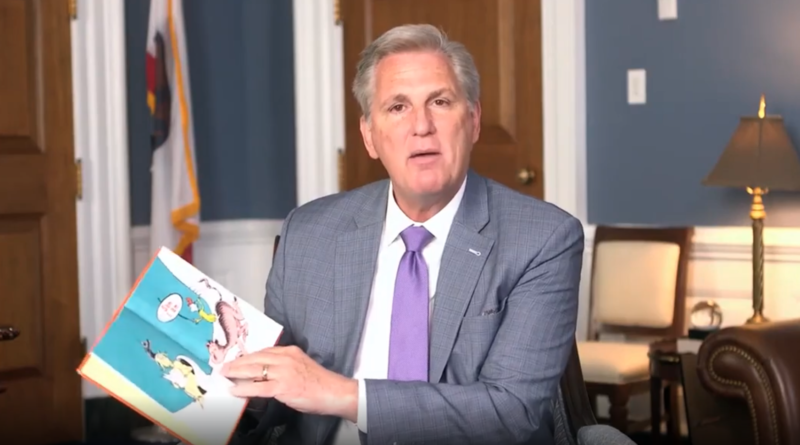It’s Time to Unsubscribe to Culture Wars
It seems the Republican party has forgotten how to govern. During the 2016 presidential campaign, the GOP realized its ticket to winning the White House was by sowing division and stoking anger among the electorate by embracing culture wars. Once securing a win, the Republican party doubled down on culture wars to distract people from their inability to govern.
Culture wars deliver “symbolic victories for some groups of voters rather than others.” Recently, Dr. Seuss and Mr. Potato Head have found themselves unlikely heroes in the Republicans burgeoning culture war.
America remains in the grips of a pandemic while simultaneously slogging through a vaccine rollout. When Congress was supposed to be working to pass a stimulus bill to help the millions of Americans suffering, House Republican Leader Kevin McCarthy used his floor time to read Green Eggs and Ham to highlight the decision of Dr. Seuss enterprises to remove some titles (though notably NOT Green Eggs and Ham) from publication. The stunt was the GOP’s malaise in microcosm: histrionics in lieu of governing.
This is only a recent example of the GOP using culture wars to detract from the larger issues at hand. After eight years of playing obstructionists during Obama’s presidency, Republicans beat the drum on repealing and replacing Obamacare, smaller government, and lower taxes. But once Republicans won back the White House, they chose to spend their time playing into culture wars and stoking anger among their base.
Instead, the Republican party doubled down on culture wars. Sparking digital fires across social media platforms on hot-button issues such as immigration, family values, and freedom of speech. During the 2016 campaign and throughout his presidency, Trump and his team leveraged social media to amplify the rapidly revolving carousel of culture war flash points to distract from his utter lack of governing ideas and accomplishments.
Twitter storms kicked up, and the GOP online ecosystem doubled down, distracting from key issues plaguing our nation such as the wage gap, the growing threat of domestic terrorism, and racial injustice. For four years, elected Republicans parroted Trump’s disinformation and abandoned their governing duties to take up “slacktivism” on Twitter.
Republicans preyed on the fears of their base and created battles over largely irrelevant issues. Hidden deep at the core of these battles about freedoms being under attack and the growing threat of socialism if Democrats win is the growing fear of change, and the erosion of their culture as the dominant force in government. Which is why, when the pandemic broke out, Republicans turned not towards leading the country through crisis, but to the cultural flash point it created: mask wearing.
Masks became heavily politicized as President Trump refused to follow health guidelines and wear a mask. Trump further exacerbated the partisan divide when he repeated many false claims at his briefings and downplayed the severity of the coronavirus.
Getting into the trenches to defend obscure racist cartoons or the gender of a plastic potato allows the GOP to distract from larger issues. These elected officials do not have an agenda to make America great again. Policy solutions are hard to craft, and the allure of likes and shares makes rage-posting and indignant selfie videos far more enticing.
In 2016, many Americas subscribed to the culture wars and became engrossed in the shock and awe of it all. In 2020, even more Americans – weary from four years of fear-baiting, lies and vitriol from the Oval Office – voted to turn the page on this chapter in American history.
Governing isn’t sexy. Solving the national debt, ongoing economic crisis, or fixing the electoral system, requires hard work.
The time to govern is now.
Written for and originally published on Stand Up Republic

